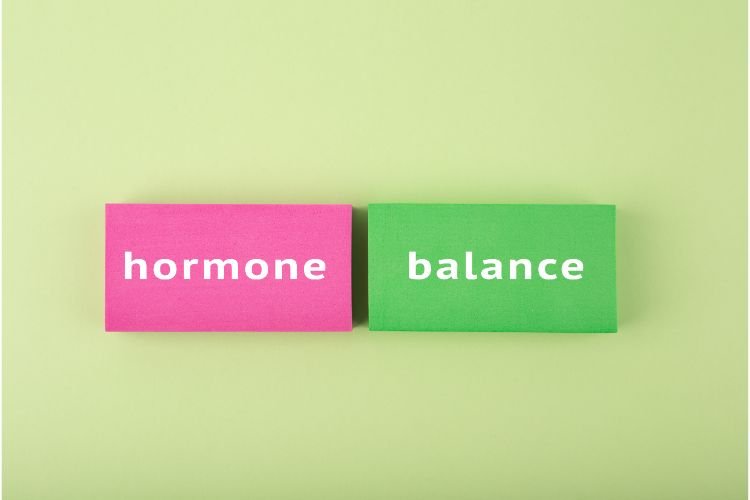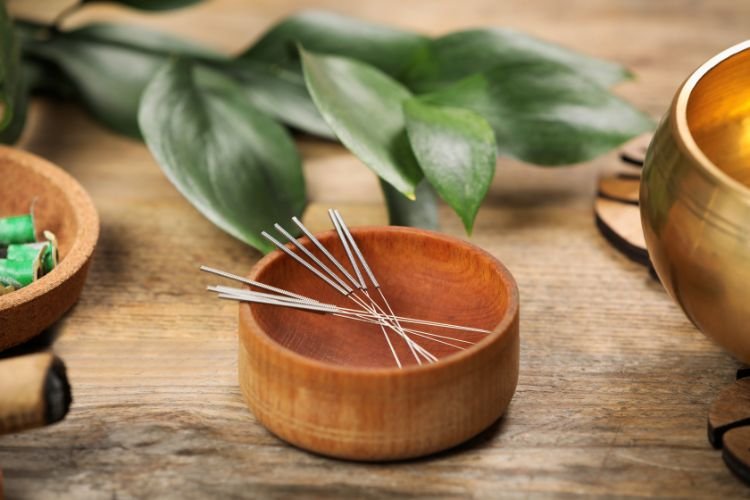
Top Holistic Treatments for Persistent Skin Conditions
Persistent skin conditions such as eczema, psoriasis, and acne can be challenging to manage and significantly impact your quality of life. While conventional treatments often focus on symptomatic relief, holistic approaches aim to address the root causes and promote overall skin health. This guide explores various holistic treatments that can help manage and potentially alleviate these persistent skin conditions, integrating natural remedies with lifestyle practices.
Holistic Treatments for Skin Conditions
Holistic treatments focus on the whole person, not just the skin. This approach considers physical, emotional, and environmental factors that might contribute to skin issues. The goal is to balance these elements to support the body’s natural healing processes.
What Is Holistic Skin Care?
Holistic skin care involves a combination of natural remedies, dietary adjustments, and lifestyle changes. Rather than solely treating the symptoms, this approach looks at how various factors like diet, stress, and overall health affect skin conditions. By addressing these factors, holistic treatments aim to improve skin health from the inside out.
How Holistic Treatments Differ from Conventional Methods
Conventional treatments often focus on symptom management using medications or topical treatments. In contrast, holistic treatments look at underlying issues, such as imbalances in the body or mind, and use natural methods to restore balance. This can include dietary changes, herbal remedies, and practices that promote overall well-being.
The Impact of Diet on Skin Health
Your diet can significantly influence skin health. Nutrients, hydration, and even certain foods can either exacerbate or improve skin conditions.
Anti-Inflammatory Foods for Skin Health
Incorporating anti-inflammatory foods into your diet can help manage persistent skin conditions. Foods rich in omega-3 fatty acids, antioxidants, and vitamins can reduce inflammation and support skin repair.
- Omega-3 Fatty Acids: Found in flaxseeds, chia seeds, and walnuts, omega-3 fatty acids help reduce inflammation and maintain skin hydration.
- Antioxidant-Rich Foods: Berries, leafy greens, and nuts are packed with antioxidants that help combat oxidative stress and protect skin cells from damage.
- Vitamins: Vitamins A, C, and E are crucial for skin health. Vitamin A supports cell turnover, Vitamin C boosts collagen production, and Vitamin E protects against UV damage.
Foods to Avoid for Better Skin
Some foods may trigger or worsen skin conditions. Identifying and avoiding these triggers can help manage symptoms more effectively.
- Processed Sugars: High sugar intake can lead to inflammation and exacerbate conditions like acne.
- Dairy Products: Dairy can cause flare-ups in some individuals with eczema or acne. Consider reducing dairy intake to see if it improves your skin.
- Gluten: For some people, gluten can trigger inflammatory responses. If you suspect gluten is an issue, try a gluten-free diet.
Helpful Hint:
Experiment with an elimination diet to pinpoint foods that may be affecting your skin. Gradually remove suspected items and monitor any changes in your skin condition.
Herbal Remedies for Persistent Skin Conditions
Herbal remedies have been used for centuries to treat skin issues. These natural treatments can help soothe irritation, reduce inflammation, and support skin healing.
Aloe Vera: A Soothing Solution
Aloe vera is renowned for its soothing and healing properties. It contains compounds that can reduce inflammation and promote skin repair. You can use aloe vera gel directly from the plant or purchase it as a topical treatment.
Calendula: Anti-Inflammatory and Healing
Calendula, also known as marigold, has anti-inflammatory and antimicrobial properties. It’s commonly used in creams and ointments to treat conditions like eczema and dermatitis. Calendula can help reduce redness and swelling while supporting the healing process.
Turmeric: The Golden Healer
Turmeric contains curcumin, a compound with strong anti-inflammatory and antioxidant properties. It can be used topically in masks or taken as a supplement. Turmeric may help reduce symptoms of psoriasis and eczema by calming inflammation and promoting healing.
Common Herbal Remedies for Skin Health
| Herb | Benefit | Application |
|---|---|---|
| Aloe Vera | Soothes inflammation and promotes healing | Apply gel directly to the skin |
| Calendula | Reduces redness and speeds up healing | Use in creams or as a tea rinse |
| Chamomile | Calms irritated skin and reduces swelling | Apply tea bags to affected areas |
| Green Tea | Provides antioxidants and reduces acne | Apply cooled tea or use in topical creams |
Helpful Hint:
When using herbal remedies, ensure they are free from additives or artificial ingredients. Opt for pure, high-quality products to maximize their effectiveness.
Stress Management Techniques for Skin Health
Stress can significantly impact skin health, often triggering flare-ups or worsening existing conditions. Managing stress effectively is crucial for maintaining healthy skin.
Meditation and Mindfulness Practices
Meditation and mindfulness can help reduce stress and promote emotional balance. Techniques like deep breathing, guided imagery, and mindfulness meditation can lower stress levels and improve overall well-being, which can, in turn, benefit your skin.
The Role of Physical Activity
Regular exercise is not only good for overall health but also beneficial for skin health. Exercise increases blood flow, which helps nourish skin cells and remove toxins. Activities like yoga, walking, or swimming can also reduce stress and improve mood.
Helpful Hint:
Incorporate stress-relief activities into your daily routine. Even short, consistent sessions of mindfulness or exercise can make a significant difference in managing stress levels and improving skin health.
Natural Treatments for Specific Skin Conditions
Different skin conditions may benefit from specific holistic treatments. Here’s a closer look at how holistic approaches can target various persistent skin issues.
Managing Eczema with Holistic Treatments
Eczema, or atopic dermatitis, is characterized by dry, itchy, and inflamed skin. Holistic treatments for eczema often focus on moisturizing the skin and reducing inflammation.
- Oatmeal Baths: Adding colloidal oatmeal to a bath can soothe itching and reduce inflammation.
- Coconut Oil: This natural oil is a great moisturizer that can help keep the skin hydrated and reduce eczema flare-ups.
- Elimination Diet: Identifying and avoiding potential food triggers, such as dairy or gluten, may help manage eczema symptoms.
Holistic Approaches to Psoriasis
Psoriasis is an autoimmune condition that causes rapid skin cell turnover, leading to thick, scaly patches on the skin. Holistic treatments for psoriasis aim to reduce inflammation and support immune function.
- Dead Sea Salt Baths: Soaking in Dead Sea salts can help remove scales and soothe itching.
- Evening Primrose Oil: This oil contains gamma-linolenic acid (GLA), which may help reduce inflammation and improve skin texture.
- Probiotics: Taking probiotic supplements or consuming fermented foods can support gut health, which may influence immune function and skin health.
Acne and Holistic Treatments
Acne is a common skin condition characterized by clogged pores and inflammation. Holistic treatments for acne focus on reducing inflammation and balancing hormones.
- Tea Tree Oil: Known for its antibacterial properties, tea tree oil can be applied topically to help clear acne-causing bacteria.
- Green Tea: Consuming green tea or using it as a facial toner can reduce inflammation and provide antioxidants that support skin health.
- Hormonal Balance: Addressing hormonal imbalances through diet and lifestyle changes can help manage acne. Foods rich in zinc, such as pumpkin seeds and lentils, can be beneficial.
Additional Tips for Integrating Holistic Treatments
Integrating holistic treatments into your daily routine can enhance their effectiveness. Here are some additional tips to make the most out of your holistic approach to skin care.
Creating a Consistent Routine
Consistency is key when it comes to holistic treatments. Establish a daily routine that includes dietary adjustments, topical applications, and stress-relief practices. Over time, you’ll likely notice improvements in your skin health.
Listening to Your Body
Pay attention to how your body responds to different treatments. If you notice positive changes, continue with those methods. If a treatment seems to worsen your condition, discontinue it and consult with a healthcare professional.
Consulting with Professionals
While holistic treatments can be effective, it’s important to consult with healthcare professionals to ensure they are appropriate for your specific skin condition. A dermatologist or a holistic health practitioner can provide personalized advice and ensure that your treatment plan is safe and effective.
Evaluating Holistic Treatments: Pros and Cons
Pros
- Natural Ingredients: Holistic treatments often use natural and organic ingredients, which can be gentler on the skin compared to synthetic chemicals.
- Comprehensive Approach: By addressing diet, stress, and lifestyle, holistic treatments aim to tackle the root causes of skin conditions rather than just the symptoms.
- Reduced Side Effects: Many holistic remedies have fewer side effects compared to conventional medications, making them a safer option for long-term use.
- Personalized Care: Holistic treatments can be tailored to individual needs, allowing for a customized approach to skin health.
- Promotes Overall Well-Being: Holistic practices often include stress management and healthy lifestyle changes, which contribute to overall health and well-being beyond just skin health.
Cons
- Limited Scientific Evidence: Some holistic treatments lack extensive scientific research and clinical trials, which can make their effectiveness harder to validate.
- Possible Delays in Results: Holistic treatments often take longer to show results compared to conventional treatments, which may be frustrating for those seeking quick relief.
- Potential Allergic Reactions: Natural ingredients, while generally safe, can still cause allergic reactions in some individuals, necessitating caution and testing.
- Need for Consistency: Effective holistic treatments require consistent application and lifestyle changes, which might be challenging to maintain over time.
- Consultation Required: It’s important to consult with healthcare professionals before starting holistic treatments, especially for severe or chronic conditions, which may not be fully addressed by holistic methods alone.
FAQs
Wrapping Up
Holistic treatments offer a unique and comprehensive approach to managing persistent skin conditions. By focusing on natural remedies, lifestyle changes, and dietary adjustments, you can address the root causes of skin issues and promote overall well-being. Integrating practices like herbal remedies, stress management, and specific dietary changes can help support your skin’s natural healing processes and improve its health over time.
Remember, while holistic treatments can be highly effective, it’s crucial to consult with healthcare professionals to tailor these approaches to your specific needs. By combining holistic methods with professional guidance, you can create a balanced strategy for healthier, more resilient skin. Stay informed, make thoughtful choices, and take proactive steps toward your skin health journey.


